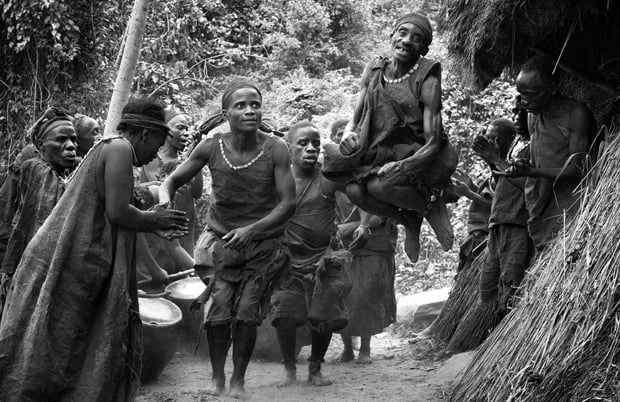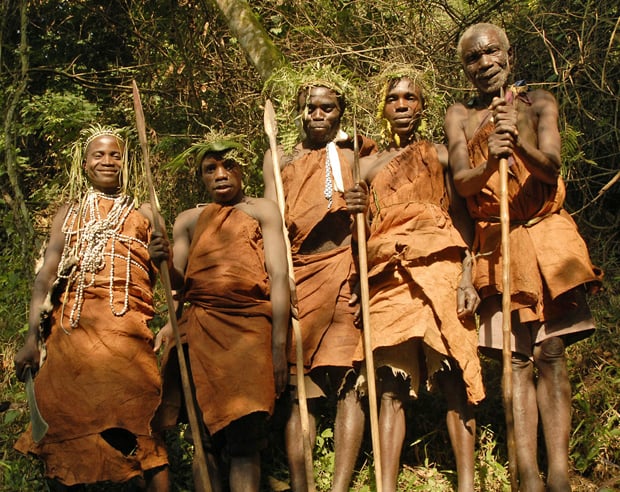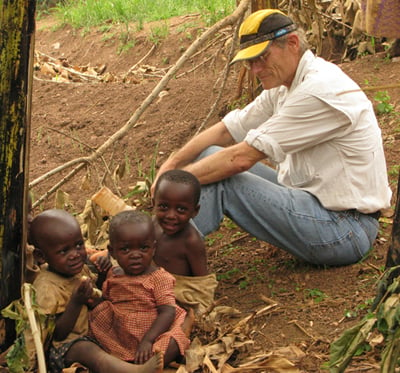Rural Round-up: Scott Kellerman - what we have in common
 Dr Scott Kellerman is a bit of a legend, an experienced clinician and advocate for rural and remote medicine in resource poor settings and an accomplished Family Medicine Practitioner in the US and around the globe.
Originally Scott came to Uganda to carry out health survey's of the Batwa pygmy tribe, and then ended up staying for over a decade and establishing what is now a successful and award winning hospital.
He writes this month's rural round-up.
Dr Scott Kellerman is a bit of a legend, an experienced clinician and advocate for rural and remote medicine in resource poor settings and an accomplished Family Medicine Practitioner in the US and around the globe.
Originally Scott came to Uganda to carry out health survey's of the Batwa pygmy tribe, and then ended up staying for over a decade and establishing what is now a successful and award winning hospital.
He writes this month's rural round-up.

Bwindi Community Hospital, adjacent to the Bwindi Impenetrable Forest of southwestern Uganda, is a 120 bed hospital rated as one of the best in Uganda. The hospital’s original focus was addressing the health care of the Batwa pygmies, the original inhabitants of the Bwindi Forest. From a survey in 2000 the Batwa’s under age five mortality rate was determined to be 38%, a life expectancy estimated at only 28 years and an annual income of around $25.
The hospital had humble beginnings, starting as a mobile medical clinic held under the spreading branches of a Ficus tree. Hundreds of patients would patiently wait to be examined while children with cerebral malaria lay in the shade of the tree, tethered to IV’s hanging from branches above. After several years, a simple outpatient clinic was built. More recently maternity, surgery, pediatrics, an HIV unit and a waiting mother’s hostel have all been added.
According to the World Health Organization; “the world’s biggest killer and the greatest cause of ill-health and suffering across the globe is a code is listed near the end of the diagnostic code book: Z59.5 – “extreme poverty”. Extreme poverty results in poorly educated children who lack immunizations and suffer from rampant diarrhea diseases. Early on, the Bwindi Hospital was actively engaged in treating the very sick but prevention of disease remained a conundrum in this resource poor setting.
Photo: Batwa Warriors at right and at top - dancers
Several years ago I was asked by a colleague to meet with the Abafumu (traditional healers). I had resented the Abafumu and their harmful practices such as the casting of spells, making multiple cuts on the body over an afflicted area, known as “Kushara Oboro” and the use of brand-like hot implements , “Kwosya” applied to the skin in an attempt to draw out the infection.
I agreed to meet with the Abafumu and on the appointed day, forty of them arrived at my house. I was a bit intimidated but recognize several friends in the group. We distributed warm sodas, freshly baked bread and fruit. The drums began pounding and we danced. The Abafumu introduced themselves by name and then shared their particular areas of expertise; some specialized in the treatment of malaria, others pneumonia or poisonings. Others had expertise in curing lightning strikes, marital discord and potency.
I asked if they had concerns about meeting with me and they stated that they were worried that I might be judgmental of their practices. I agreed that their concerns were well founded but that I would try, as much as possible, to lay aside any pre-conceived impressions.
An Abafumu then stood up, menacingly pointing a bony finger at me, and posed a difficult question. He demanded, “what do you think about our practices of ‘kwosya’ and’ kushara oboro’ that we value and practice?” I was speechless and considered that any response would greatly threaten our relationship. As I searched for the appropriate words, an elderly Abafumu named Batusa rose from her chair. The room assumed a hushed silence. I had heard of Batusa for many years, she was the most respected and powerful of all of the Abafumu. Her spells were reported to have great effects and depending on the context, could lead to either life or death. Her deep set eyes seemed to emanate light, she turned her piercing stare on me and my blood ran cold as she slowly, with halting steps, made her way over to the fellow who had asked the difficult question. She put a hand on his shoulder and gently but firmly forced him back in his chair.
Batusa addressed the group and announced “We will not be talking about our differences but only what we have in common”.
Thereafter we began regular collaborations. The Abafumu eventually became the backbone of our community health outreach. Bwindi Community Hospital has now trained more than 500 village health promoters, each responsible for 20-25 households, many of these are Abafumu.

These health promoters are the hospital’s eyes, ears and feet on the ground. They assisted in the distribution of bed nets and as a result the malaria rates at our institution plummeted over 90%. The Abafumu have increased compliance of CB-DOTS tuberculosis therapy from a rate of 56% to currently 97%. Lives have been saved and diseases prevented by this collaborative effort.
I wonder how many dilemmas confronting the world could be resolved by the breaking of bread, singing and dancing together and a willingness to listen.
Photo: Scott and Batwa kids